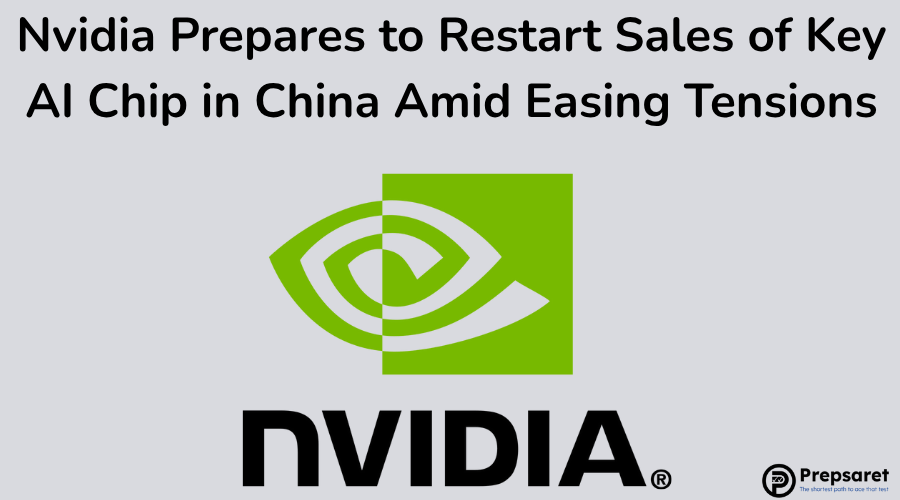Nvidia has announced its intent to resume sales of its H20 AI chip in China, just days after its CEO, Jensen Huang, met with U.S. President Donald Trump during his visit to Beijing.
The company is currently in the process of seeking authorization from the U.S. government and anticipates approval in the near future.
According to Nvidia, “The U.S. government has assured NVIDIA that licenses will be granted, and NVIDIA hopes to start deliveries soon.”
These licenses are critical, as the company had estimated a $15 billion revenue loss due to previous restrictions that blocked it from selling its most advanced chips in China.
The export limitations, originally put in place by the Trump administration, were part of broader efforts to prevent advanced U.S. technology from potentially aiding China’s military development.
In response to these curbs, Nvidia has created a new AI chip that aligns with existing U.S. regulatory guidelines while remaining viable for the Chinese market.
Related post: Nvidia Surges to $4 Trillion Valuation, Cementing Its AI Dominance
Heightened Focus on Supply Chain and Market Strategy
Jensen Huang is expected to host a press conference in Beijing on Wednesday as he attends a major supply chain exhibition. This marks his second visit to China in 2025, reinforcing Nvidia’s long-standing emphasis on the region’s importance.
Speaking to Chinese broadcaster CCTV, Huang emphasized, “The Chinese market is massive, dynamic, and highly innovative, and it’s also home to many AI researchers. Therefore, it is indeed crucial for American companies to establish roots in the Chinese market.”
Nvidia continues to face increasing pressure from local competitors like Huawei, yet its proprietary CUDA platform keeps demand for its chips high in China’s tech ecosystem. Meanwhile, U.S. lawmakers are watching closely.
A bipartisan group of senators recently urged Huang to avoid engaging with any companies linked to Chinese military or intelligence organizations or listed on U.S. export blacklists.
The timing of Nvidia’s efforts coincides with a broader thaw in U.S.–China relations. While Washington has loosened restrictions on software exports for chip design, Beijing has similarly relaxed limits on rare earth shipments.
Still, some analysts remain cautious.
He Hui, a semiconductor expert at Omdia, stated, “The uncertainties between the U.S. and China remain high and despite a pause in H20’s ban, Chinese companies will continue to diversify their options to better protect their supply chain integrity.”
Alongside pursuing renewed H20 sales, Nvidia unveiled a new RTX Pro GPU tailored for the Chinese market. This model, built to comply with export regulations, supports AI solutions in smart industries and logistics.
Reports also indicate that this version will be more cost-effective than the H20, thanks to its less complex design.
Read next: Malaysia Tightens Oversight on U.S.-Made AI Chip Exports
Looking to level up in your career?
Prepsaret is here to help you succeed! Whether you’re studying for PMP, CompTIA, or an HR certification, we offer the tools and support you need to stay focused and make progress.
With high-quality study guides, realistic practice tests, and expert guidance, you’ll be fully equipped to tackle your exam and take the next step in your professional journey with confidence.

